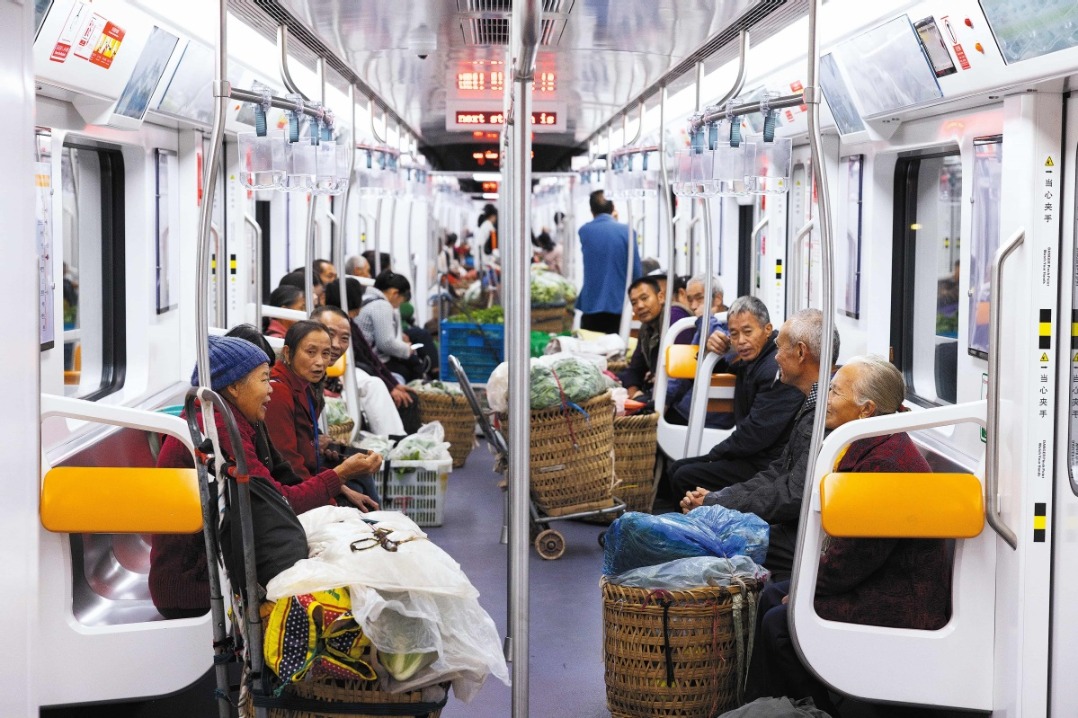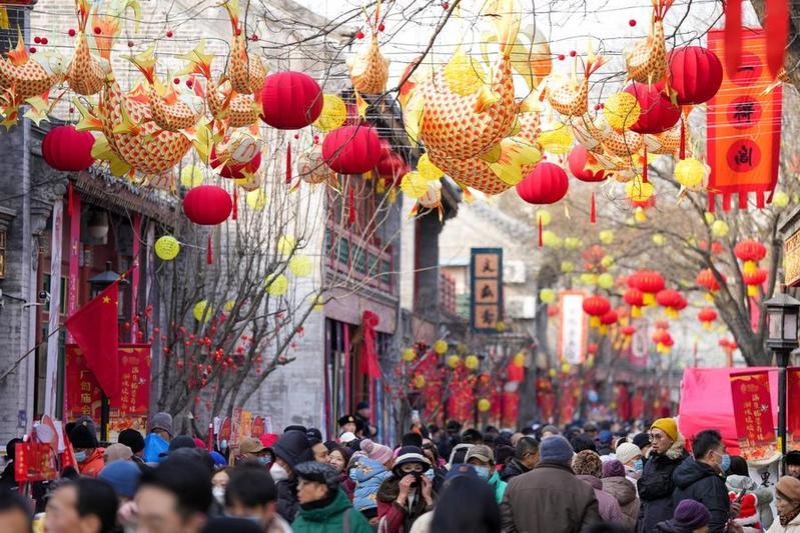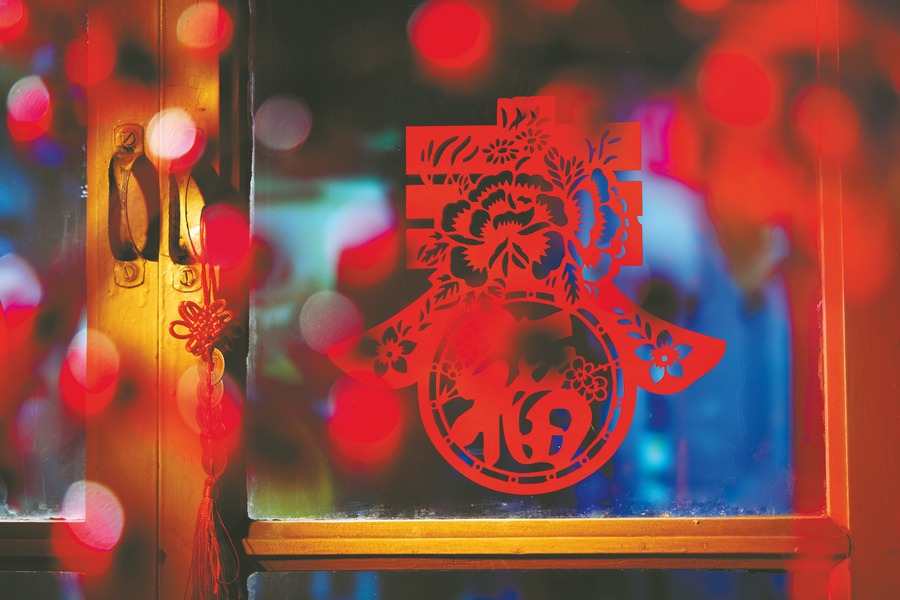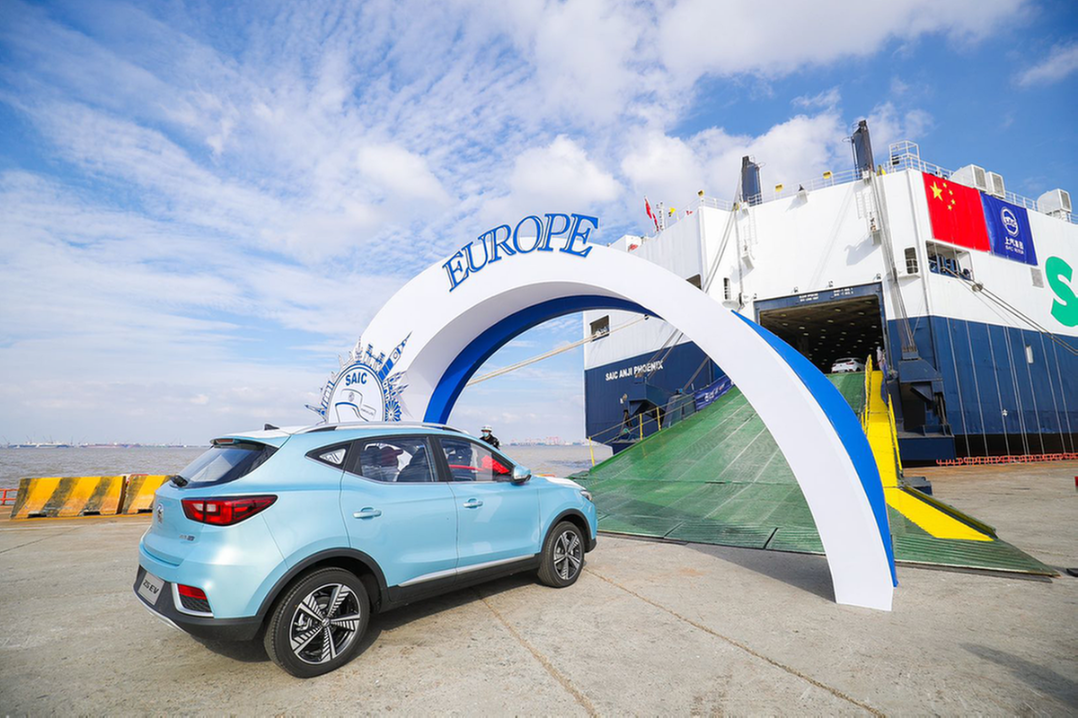Shopping festival ushers in new era of e-commerce


As China has moved into an era of ever-expanding digital connectivity, the ongoing National Online New Year Shopping Festival has become one of the most anticipated events of Spring Festival. Originally, launched to meet consumers' demand for holiday goods, the festival has blossomed into a vibrant cultural phenomenon that connects millions of households, sharing the joy of welcoming Chinese New Year. It's a celebration not only of commerce, but also of community, culture and tradition.
The 2025 edition promises to be a milestone, bringing with it a new vision of integration: online and offline commerce, domestic and international markets, all woven together seamlessly. It offers exciting prospects for cultural exchanges and reaches beyond the shores of China, allowing overseas Chinese and international consumers to join in the festivities.
With Chinese New Year securing a place on UNESCO's Intangible Cultural Heritage list, the 2025 shopping festival has the potential to become a global platform for cultural dialogue, showcasing Chinese traditions to the world while promoting the development of e-commerce.
The most significant feature of the 2025 shopping festival is the fusion of domestic and international markets. E-commerce platforms act as digital bridges between China and the world, creating new opportunities for cultural exchanges. The e-commerce platforms are not just facilitating shopping; they are also opening doors to the world, offering Chinese consumers access to premium international goods, while allowing foreign consumers to enjoy the richness of Chinese New Year products.
For example, the ongoing 2025 China (Guangxi)-ASEAN Online New Year Shopping Festival has brought top products from ASEAN member states to an online marketplace, allowing Chinese shoppers to explore foreign cultures while boosting domestic consumption. Similarly, the Silk Road e-commerce Spring Festival event, which was held in Shanghai on Jan 22, attracted many international tourists, offering them unique cultural experiences of China's most cherished holiday.
E-commerce platforms are not just focusing on the domestic market. By setting up dedicated sections for Chinese New Year products in their international sections, these platforms are ensuring that overseas Chinese and foreign consumers can partake in the celebrations. This expansion of cultural exchanges through e-commerce is one of the shopping festival's most exciting developments.
E-commerce platforms have adopted an innovative, multi-channel approach to promotion. By combining offline product exhibitions with online live-streaming, they are offering consumers a 360-degree view of the festival's offerings, merging digital and physical experiences. For example, the Hainan Online New Year Goods Festival features livestreaming alongside offline events like Chinese New Year's markets and food streets, providing an immersive shopping experience that blends the best of both worlds. Through these hybrid formats, consumers can shop, learn, and engage with cultural traditions in ways that were previously unimaginable.
A distinctive feature of the festival is how platforms leverage technologies such as big data and immersive media to provide personalized shopping experiences. Through AI and algorithms, platforms such as Taobao, Tmall, JD and Pinduoduo can recommend products with remarkable precision, ensuring that consumers find exactly what they're looking for. Consumers no longer have to just browse; they are invited to participate in the experience, to become part of the culture of the country whose products they are buying.
Beyond the material, the 2025 festival also represents a new model for cultural exchange. China's younger generations have been increasingly seeking products that reflect their cultural identity, mainly for their emotional significance. As a result, platforms are increasing their offerings to meet these demands.
For example, e-commerce platforms are beginning to offer "intangible cultural heritage" experiences alongside traditional goods. Imagine purchasing a piece of hand-embroidered art piece only to find a link to an online workshop where you can learn the art of embroidery, guided by master artisans. These immersive experiences create lasting connections between consumers and the rich cultural history behind the products.
In a broader sense, the shopping festival is an opportunity to explore and share the stories of Chinese New Year. Regional customs, local folklore and unique types of celebrations are woven into the fabric of e-commerce offerings, allowing consumers to experience the true essence of Spring Festival.
The 2025 shopping festival has also raised new consumer expectations. As product quality and cultural authenticity become paramount, the e-commerce platforms have to rise to the occasion and provide not only quality products but also an engaging, enriching experience that resonates with consumers' cultural sensibilities.
The rapid growth of cultural tourism presents a new challenge for e-commerce platforms. As consumers seek seamless travel experiences — from transportation to accommodation, tours and tickets — the e-commerce platforms must expand their capabilities. By integrating these services into a "one-stop shop", the platforms can meet the growing demand for cultural tourism and help consumers navigate the new landscape with ease.
Indeed, the e-commerce platforms are using AI and machine learning to offer more accurate and personalized recommendations. As today's consumers have an overwhelming array of choices, technology streamlines the process, helping them make better, informed decisions. The future of e-commerce lies in making the consumer experience enjoyable and satisfying.
Looking at the 2025 National Online New Year Shopping Festival, it seems the potential for e-commerce to revolutionize both cultural exchanges and consumer experiences is clearer than ever before. This festival is more than just a shopping event; it's a cultural movement that brings the world closer to China while offering Chinese consumers access to global products.
By harnessing the power of technology, fostering a global exchange of ideas and building immersive, personalized shopping experiences, e-commerce platforms will not only be able to meet the diverse needs of today's consumers but also promote China's rich cultural heritage to the world.
The author is a professor at the Lingnan College, Sun Yat-sen University. The views don't necessarily reflect those of China Daily.
If you have a specific expertise, or would like to share your thought about our stories, then send us your writings at opinion@chinadaily.com.cn, and comment@chinadaily.com.cn.
































